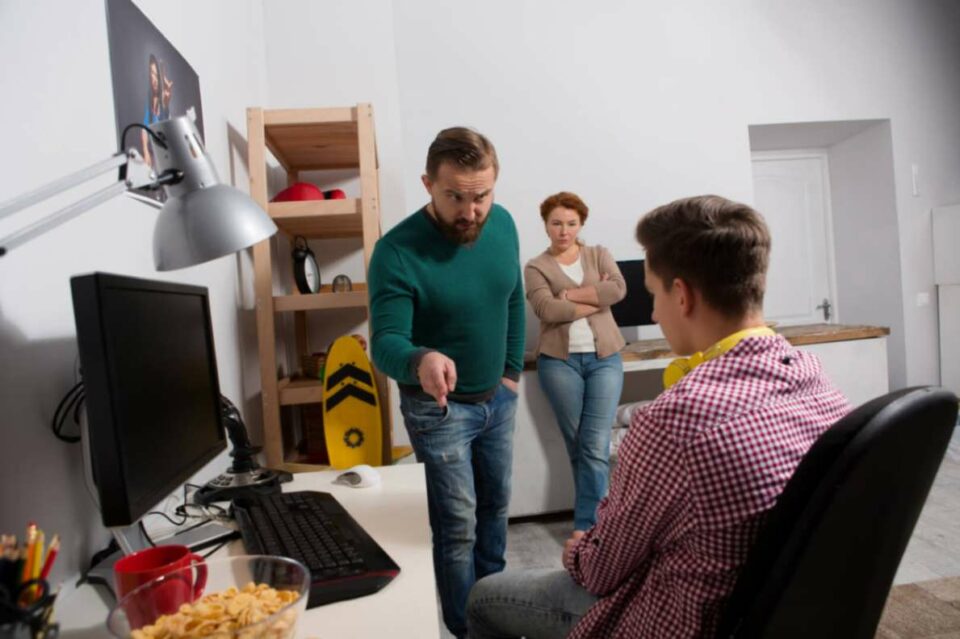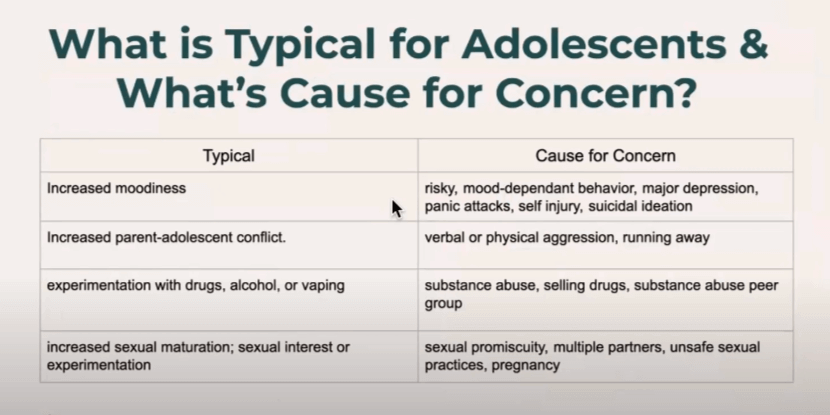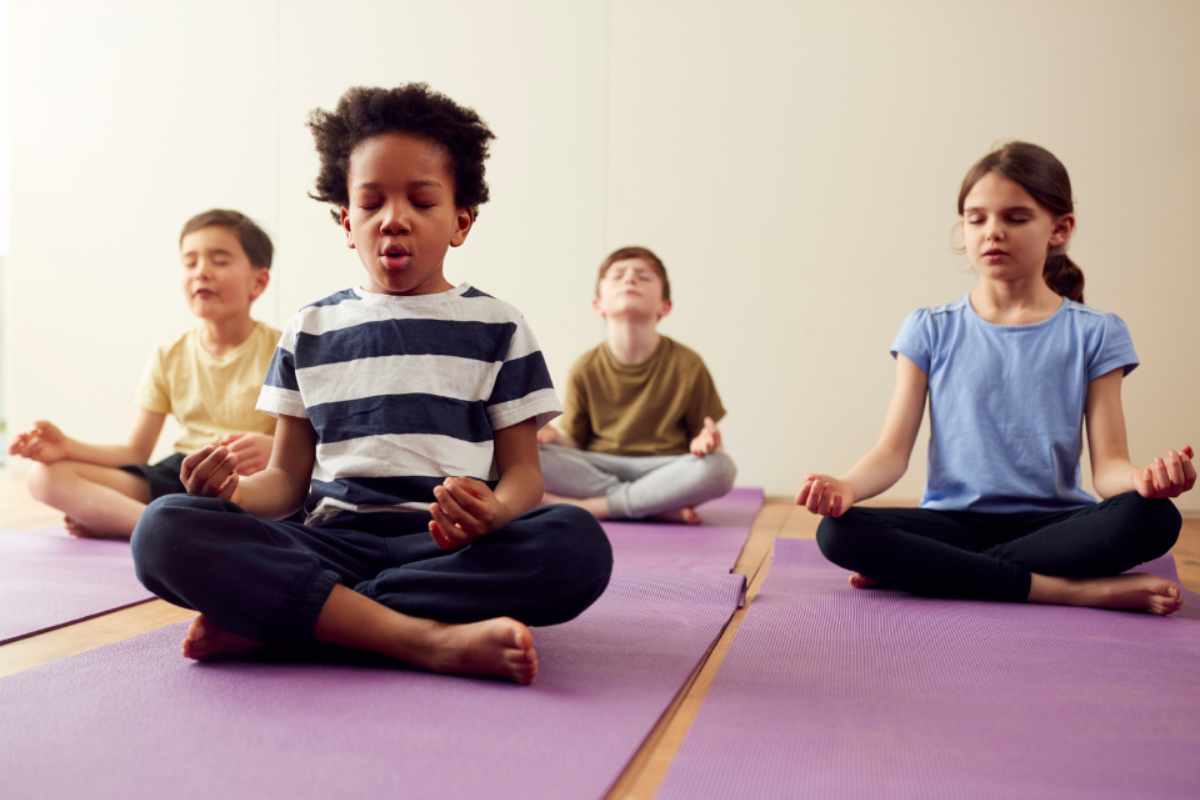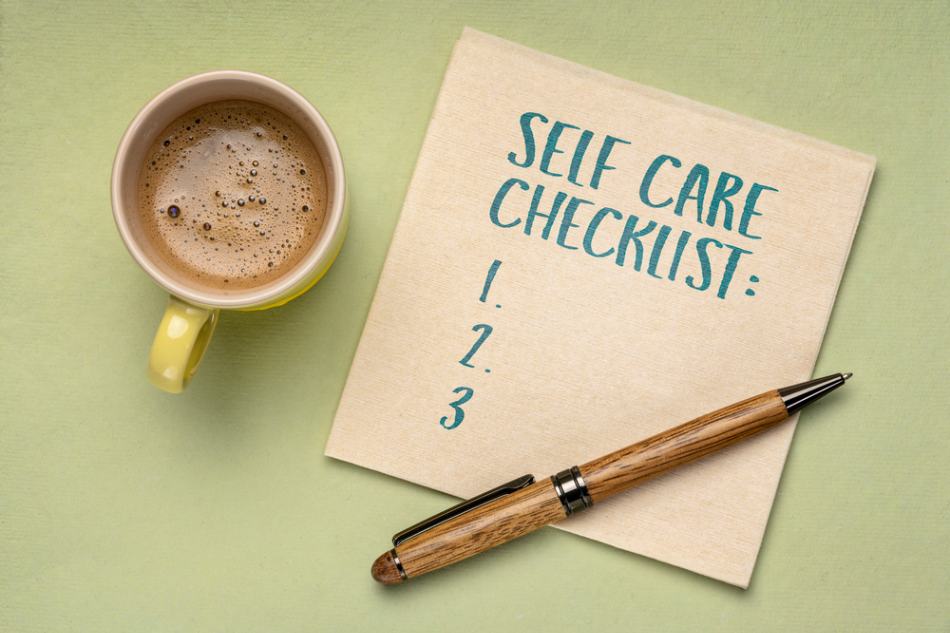October 12, 2023
Webinar: Learning to Connect and Set Boundaries with Your Teen
Written by Rachel Eddins
Posted in Parenting & Family, Webinars and with tags: parenthood, parenting, teen, teens

This webinar helps parents of teens 13-19 yr olds understand how to foster trust and create healthy boundaries with their teenagers, while still allowing their teen to explore autonomy. This helps build trust between the parent(s) and teen while encouraging healthy growth and development for their age.
Presented by Jennifer Castro, LMSW, Supervised by Marcie Dinkin, LCSW-S.
Watch a replay of the presentation here.
Parenting Teens:
Hello! My name is Jennifer Castro, and I am a licensed Master of Social Work here at Eddins Counseling Group. Today, we will be talking about the Not so ”terrible” teenage years. I chose this title because I think oftentimes parenting can get a little overwhelming, especially when it comes down to parenting teens. I hope that today can be informative and it can provide a little bit of insight.
My hope for this talk today is to learn how to parent to foster connection with your teen. We will lightly touch on some of the more challenging things that teens go through.
Fostering a Healthy Relationship with Your Teen
As I mentioned, we are talking about fostering a healthy relationship with your teen. Today we’re thinking about all age groups from 12 to 19. We’ll be talking about the teenage brain, setting realistic expectations for yourself and for your teen, and building trust. Trust helps your teen when they need it and helps you create a relationship that you would want to continue having with your teen throughout their young adult life.
The Teenage Brain
What Part of the Brain is Decision Making?
Getting started and jumping right in, we are going to discuss the teenage brain. One thing that we know about teenage brains is that they are still developing.
A teen’s frontal lobe is actually not fully developed until around 25 for men and 27 for women.
Sometimes people think that once a teen is about 16, or 17, they should be making wiser choices, or they should know better. These are common things I hear in therapy sessions.
I’ve worked with families and teens for quite some time. I’ve been in the mental health field for about 12 years. I used to work with young adults who were needing to launch. Oftentimes they would come into the step-down program where we would help them get into school, work, volunteering, etc, and help them while they were navigating more complicated things. Sometimes they were severely depressed or had anxiety to the point where they were unable to leave the house. These big feelings would make life a little bit more challenging. Part of my role was to help them navigate life.
So throughout this time, I’ve worked with parents, and I’ve worked with teens, and I’ve worked with young adults.
One thing that I’ve seen over and over again is the parents’ expectation that the teen should know better, they should be doing better, they should just be able to make wiser choices than they’re actually making. Sometimes that is true, and sometimes that is not true.
When Is Your Brain Fully Developed?
Your teenager’s brain is still growing. It’s still catching up to its body if you will. So you may have a teenager who looks really mature or maybe looks more adult-ish than not, but their brain is still playing catch up and the frontal lobe is still developing.
This can cause your teen or even young adult to have difficulty holding back or controlling emotions, a high preference for high-excitement exploration and new activities, inadequate planning and limited judgment, and more risky and impulsive behaviors.
We all feel a little bit more frightened by risky and impulsive behaviors. That can mean your teen might think it’s really fun to speed and race their friends on the highway. Or this is also one of the parts of the brain that might say: “Let us skip school and go with our friends” and maybe experiment with vaping.
This is the part of the brain that is responsible for helping us to make really big and important decisions. It’s also the part of the brain that sometimes will not allow us to do so.
I read this quote as I was doing research for this, and it said: “Until their frontal lobe is fully developed, you have to be their frontal lobe for them.” I thought that was interesting because I thought if only we could do that. We may not be able to do that, but we are responsible as parents for trying our best to help our children and help our teens make good decisions. And I think there also has to be grace and knowing that that may not always be possible. But we’re there to provide safety nets in the event that we are able to do that.
Evolutionary psychologists suggest that adolescence emerged as a period during which young humans built the social networks, which they would need to thrive. The key to that process is bonding with peers and responding to their influence, which often involves proving loyalty by taking risks.
As anybody who has teenagers knows, their peers are just so important to them at this point in time.
We all know that this is a time when as much as you want to help them make these big, wise decisions or even everyday decisions, the part of their brain that is doing all of this is really saying: “My friends probably know a little bit more than my parents.”
While that may not be true, they just have such a huge impact on your teen at this point in time. And that’s very normal. It’s a really normal experience for your teen to be looking towards their peers who are all in this parallel process of trying to find themselves during this time.
The biggest challenge is getting their attention to allow time for coaching when their peers have access to them 24/7.
That is really hard. The best thing you can do is whenever they are around you, whenever you do have their time to make that time as meaningful as possible. It doesn’t mean that you cater to their every need or whim. But it would mean being very intentional about the way you spend your time.
So it might mean putting away phones. It might mean doing something you guys did when they were younger, or something that they may love now. Maybe it’s something that you don’t love so much, but if you engage in it with them, then they’re more likely to spend some time with you outside of that.
But it is a hard time because they are with their peers. The hope is that you can start doing those things pretty early on. And the younger they are, the easier it is. But just be patient and try your best to make it as meaningful as possible.
Setting Realistic Expectations

Adjusting to Autonomy
One of the most important tasks for all adolescents is learning autonomous skills that will help them manage their own lives and make positive, healthy choices. Autonomy refers to one’s growing ability to think, feel, make decisions, and act on his or her own (Russel and Bakken, 2002).
What can we do or what do we think about this? And what does this mean? For us, as parents, we have to adjust. One of those is adjusting to what we call autonomy. Autonomy is pretty much the self-governing part of us.
Autonomy refers to one’s ability to grow, think, feel, make decisions, and act on his or her own.
It is also the part where we think of independence or where they are learning self-determination, learning how to just think for themselves. I sometimes think that when parents hear the term “letting go” or losing a little bit of control over teens or maybe once they hit that age, they’re looking to become young adults. They’re looking to become a little bit more of their own person. And so that is part of what autonomy is.
Caregivers can sometimes threaten that autonomy when there’s too much of a need for over-controlling. So today we are going to talk a little bit about the consequences of over-controlling and what that can do to your teen.
How To Build Trust With Teenagers?
The balance between keeping our teens safe, and letting them explore young adulthood
Do you feel that you and your teen have a good relationship when it comes to trust? Do you think that your teen can trust you? And do you think that you can trust your teen?
The balance between keeping our teens safe and letting them explore young adulthood comes in this matter of trust. How can we really do that? That’s a really loaded question of how we can truly build trust when teens are in a place where they are probably testing limits, doing new things that may feel scary, especially for parents.
If we can, as parents, support exploration and individuality, we’re helping build trust. If we can validate our youth’s opinions, even when adults may disagree, we are fostering trust.
By acknowledging your teens’ perspectives and emotions, we are allowing them to use their voices and allowing them to be who they are.
One of the most common things I see, especially in the therapeutic process, is that sometimes parents are so well-meaning because part of what they want to do is make sure that their child is just going in the right direction. Making sure that they are not engaging in things that are too risky, which goes back to being like the frontal lobe for them.
Why Are Open-Ended Questions Important
Sometimes we can do that to a point where we are just not allowing them to be their own person. Encourage your teen to problem-solve make decisions for themselves, and ask open-ended questions.
“How is your day?” is still an open-ended question. You’re allowing them to just say how their day was. But it’s almost like a question that has an agenda behind it. You’re just asking: “How was school? What was that like?” So if you can, ask more questions that are really getting to know your child or your teen.
Sometimes that has nothing to do with school at all. And I think we can all get really bogged down by: “How was school? How were extracurriculars? How was practice? Or did you go to practice? Were you there on time? Who are you with?” Those kinds of questions do not foster connection.
Examples of Open-Ended Questions
Open-ended questions are the ones that can’t be answered with “yes” or “no”. An open-ended question would be like: “What do you like the most about your best friend?” That’s a great question because then they’re able to share something about somebody they enjoy. You’re giving them the ability to share what they really think about that person.
Another example of an open-ended question would be: “What was the most interesting thing that happened to you today at school?” versus asking “How was school?” Ask them what was exciting and what wasn’t. And they might still come back and say, “Nothing exciting happened today”, or “Nothing was interesting”, and they might just shut it down. But if you continue to probe with questions that are a little bit more about getting to know their experience of what their life is like, that is helpful.
When we’re thinking about trust, we’re thinking about connection.
We’re thinking about how can we really truly get to know this beautiful young adult that we are helping to raise. Who we get to love and who we get to see grow from one side of the spectrum to the other in terms of “You were just a baby, and now you are a young adult, and you’re going off and exploring. But who are you really? And how can I foster that? How can I nurture who you truly are?
Asking open-ended questions about their interests is more likely to help you gain trust. When you have trust from your teen, they are more likely to come to you in times of distress. Be a teammate!
When you had your child and they were a baby, you had to adjust from toddlerhood to childhood. It’s the same thing when they become teens, we have to adjust. I think one of the hardest things I see is that parents are just not able to adjust to the need for coaching.
The need for coaching and being a teammate versus being someone who is more of like an “air controller”, if you will. But that is super, super important at this time. And why is that? That is because, at this point in time, your teen is going to be in risky situations, is going to do the exploring, and is going to be in places and spaces where you will not.
If you’re able to build trust and gain their respect, then when they are in a place of needing your help or needing your assistance, they will be able to call you.
You always want them to be able to feel safe with you versus feeling like: “Oh, I don’t want my parents to find that out”. And that is a tricky balance. It’s really hard. But in terms of being able to have the type of relationship you want to have with your child long-term.
Another thing that we would want to do while building trust is to role model healthy decisions and behaviors.
That is probably the best way we can build trust with our young adults, because when they see who you are and your ability to be vulnerable, your ability to know boundaries and limits, and your ability to follow through. hose are all ways to help build trust.
We also have to establish clear and consistent expectations (age-appropriate). So again, there goes to that part of adjusting. Adjusting to what is age-appropriate might be the time to start depending on their age, allowing them to have extra curfew time or allowing them to be with friends a little longer.
The most important part is to be clear and consistent about what your expectations are and to make sure that you are staying true to whatever boundaries you’re putting in place.
If you’re okay with something at one point, but then you waiver on another day, then they’re just going to know that they can bend the rules a little bit more.
When we talk about independence, we should be thinking about their age group. Allow more independence when it comes to doing chores, and allow them extra time with family and friends. Let them make the decisions about their extracurriculars, the decor of their bedroom, even hairstyle choices, and choice of music. These are all things that can help them foster independence.
It’s important that we allow them to explore these things on their own without having to take over too much. This can also mean doing things like paperwork. Sometimes we might just want to jump in and do it ourselves. But it’s really important for us to allow our children to do it. If they fail, that’s okay.
Perfectionistic Parenting
Mistrust and Rupturing
- All of Nothing Thinking – Well-meaning yet, unrealistic standards
- Overcontrolled parenting can cause your child to mistrust themselves
- Ruptures create distance in families and less connection
I’ve noticed a lot in sessions recently or over the past year of parents who have very, very well-meaning expectations for their children, but may at times not realize how hard it might be for the child to also experience this all-or-nothing thinking.
The term perfectionism is less about being perfect and more about needing things to be done a certain way.
As we all know, there is no such thing as being perfect. Someone is always going to be better. Someone is always going to do things a bit more efficiently. There’s no such thing as perfect or perfection. But yet we still have plenty of people who will strive for that. While that is okay and very well-meaning, this type of parenting can really lead to All-or-nothing thinking.
What this really leads your child to feel usually would be feelings of inadequacy or feelings of not being enough, feeling very misunderstood, very overlooked. Oftentimes, a parent might think, “Well, I’m just pushing you to be your best”, or “I just want you to be the best that you can be”. Unfortunately, this can really lead you to mistrust and ruptures in your relationship with your child.
Ruptures are something we think of when, for example, you might have an argument or a fight. After this happens, you are unable to connect the way you were before, and it may also lead to mistrust. So again, we think about modeling behavior. One way we can model the opposite of perfectionism is to be okay with things not being completely perfect, with things being just okay.
It’s also really important to love your child the way they are versus loving the child for who you think they should be.
Sometimes maybe you have a parent who has really excelled and they come from a family who excels quite a bit. And there is a certain expectation to be on a certain type of career path or something. So again, while it’s all very well-meaning, it can really cause your child to have a lot of self-doubt.
One of the things that we are thinking about when we are thinking about helping a teen is we’re thinking about soon they will launch. The hope is that your child will launch successfully. That they will launch, whether that means that they go to college or that means that they go to work. It may or may not mean they leave the nest right away. But what it would mean is that they are being a productive citizen. They are working towards financial goals, and they understand what finances are. They are understanding how to do their own chores. And they are ready for the real world.
That’s what we’re trying to get them ready for. But if we are constantly placing our own values upon them, our own thoughts, our own ideas, and not letting them explore that for who they truly are, we are really doing a disservice to them. This comes from usually what seems like a good place.
What is Typical for Adolescents and What’s Cause of Concern?

When should you be concerned for your teen? Let’s look at what is typical and what is not typical.
Increased Moodiness
Increased moodiness is definitely very typical for your teen. No matter what age they are, they are hitting puberty level. They have hormones that are raging through their bodies. They’re tired and they are going through lots and lots of things with their peer group. They are managing school. They’re doing all kinds of things. Moodiness is to be expected.
When is it a cause for concern? It’s a cause for concern when they are engaging in much more risky behavior when they are in mood-dependent behavior. This includes major depression, panic attacks, self-injury or suicidal ideation, or acting upon suicidal ideation (any type that they may be trying to complete suicide or have overdose or things like that). These are when it’s time to be concerned.
This is when you do want to reach out to a therapist or another type of help. If it’s some acting upon suicidal ideation, then you would want to look for maybe even hospitalization at that point, depending on if that was needed at the time. However, it is to be expected that teens will be moody.
Increased Parent-Adolescent Conflict
Increased parent-adolescent conflict, is also to be expected. It is very normal for your teen to talk back, to be disrespectful, to not listen to what you’re saying because they just are at that point where (back to the frontal lobe) they are not fully developed and they are going to be in this place at these points in times. And that’s okay. That is normal.
When it’s not normal, it’s verbal or physical aggression and running away. If your child or teen is running away, that is a cause for concern. I say that because children or teens, do not run away from a loving, healthy home. If your child is running away, that is usually a very red flag for you to know something is not right here and something needs to be changed.
This would look different for everybody, but this is when you have a cause for concern. Again, that might be the time to look for a therapist or if it’s physical aggression, look for some type of outlet for anger management and things like that.
Experimentation With Drugs, Alcohol, or Vaping
Experimentation with drugs, alcohol, or vaping is typical. We can expect that they are hanging out with their peers. They are in a place where they are taking more risks. They’re trying to see what’s out there, and trying to be cool and to just fit in. Peers are everything to them at this moment. So, of course, we can expect that this is going to happen.

How can we not be super alarmed to the point where we are throwing trust out the window with them? When that happens, we would hope that even if they experimented, they could come and they could tell you about this happening without a big, explosive response. If you do have a big, explosive response, they’re less likely to tell you about these things in the future. And so they may continue to engage in it and just not tell you about it.
If your child is sharing that this is going on with their peer group or that it’s happening, the best thing you can do is to be patient with them and normalize the experience.
When is it a cause for concern? If you are here and you’re a good safety net for them and you’re able to be a sounding board for them, the hope is that they would not continue to engage in this because they’re coming to you and they’re saying: “I had this experience. It wasn’t very great. I didn’t like it. I don’t know what to do. Here’s what my peer group is doing.”
Then you can share some of your experiences with boundaries, of course, with limits, but you’re able to let them know this is normal. But here’s what’s not normal. What’s not normal is when it becomes substance abuse, where they become dependent upon this type of behavior, when they are doing it too much, when it’s interfering with school.
If it were to get to a point where they’re hanging out with people who are selling drugs or they themselves are selling drugs, or they are just always with a peer group that is always abusing substances, that’s when this is a cause for concern. You definitely want to steer them away. And hopefully, their hanging out with this type of group would be mitigated early on.
Sexual Interest or Experimentation
We can also be sure that increased sexual maturation is happening. Sexual interest or experimentation is also going to happen, and that would be normal. What isn’t normal? Sexual promiscuity, multiple partners, unsafe sexual practices, and pregnancy. So the last two, I really want to point out that the best thing you can do to help your teens in this time and space is to have really open, honest conversations very early on about both drugs and sex.
Studies show that if you have conversations about sex early on and if you normalize the experience for them and you are able to tell them about how to have safe sex, what that looks like, that typically helps teens to have fewer partners and to have safer sex. So it may even help them to abstain a little longer than if you were to just, one, not talk about it or to make it a shameful talk.
If you can be the one to be the one who is early on talking about sex, drugs, and alcohol, then they are less likely to get this information from their peers.
They’re less likely to engage in it. They’re more likely to come to you when they are thinking that this is something that they want to engage in. That’s how you can help them mitigate these bigger things that are bound to happen.
Be on the lookout for:
- Changes in sleep patterns
- Changes in appearance
- Dramatic changes in eating and hygiene, too much or too little
- Resistant behavior around schoolwork
- Drops in grades and interests
- More irritable than usual
- Isolation and separation
- Rapid switch in routine
- Switch in friend groups
Changes in sleep patterns
If you have a teen, here are some things you should be on the lookout for. Changes in sleep patterns, which include too much or too little sleep. If someone is not sleeping enough, that is a cause for concern. If they are sleeping too little and they’re sleeping a lot, that’s a cause for concern. So if they come home and they just go straight to bed and then they sleep all day until it’s time to go to school the next day, it is likely that they are depressed. If they are not sleeping at all and you notice that they’re always up at night and their sleep cycle is super off, that is also cause for concern.
Changes in appearance
Changes in appearance, especially if it’s radically changing. All of a sudden you see that they are dressing differently. They’re doing their makeup very differently. Their hair is completely changed or any type of other altering of their appearance, especially if it’s just a radical change, is something to be on the lookout for.
Dramatic changes in eating and hygiene
Dramatic changes in eating and hygiene. Again, too much or too little. So if they’re eating way too much, start to ask questions. If you see that they are not brushing their teeth, not washing their face, not really doing any of this, or they’re doing it in an excessive amount.
So if they are not taking care of themselves, they might have depression. And on the other opposite end, if they might be concerned with body image, we might be thinking about body dysmorphia or things like that.
Resistant behavior around schoolwork
Resistant behavior around school work. Let’s say that your teen used to always do their work, and now all of a sudden, they are just not interested. There could be something going on at school. Again, asking open-ended questions, like questions about their friends, asking questions about what they enjoy at school, or what they just enjoy in their day-to-day life. And if they’re not able to give you anything, that’s again, it’s something to just be on the lookout for.
Drops in grades and interests
Drops in grades and interests. If they lose all interest, we might be thinking about depression. We might be wondering if this is a sign that they may be depressed. More irritable than usual. Again, we talked about how they would probably already be pretty irritable, but this is more irritable than usual.
Isolation and separation
Isolation and separation. This goes back to sleeping too much or just being in the room and never coming out, never wanting to be around family or friends, which is a cause for concern.
Rapid switch in routine/Switch in friend groups
A rapid switch in routine or switch in friend groups or maybe having friends and then no longer having friends, these fall the cause for concern.
Some of those things might be a tell-tale sign that they might be considering running away if there’s something going on at home, or maybe that they have major depression, or maybe that they are starting to engage in substance abuse. Maybe they are experiencing whatever it might be at school or with their peer group. So these are things that should raise red flags for you.
Understand the Uncertainty
Idk? And that’s okay
Teenagers go to school and they have access to drugs and alcohol. What if they’re starting to have sex or what if they want to have sex with their boyfriend, girlfriend, partner, or whomever? And there’s so many fears that come around from that. I think that’s just completely normal.
One of the things that I like to talk about is uncertainty. How can we, as parents, be comfortable with being uncertain of what’s to come? I know that sounds a little funny because why would we want to be uncertain when it’s something as big as our child? But sometimes we just don’t know. Sometimes parenting is messy.
Almost every parent feels that on a daily basis, where sometimes we just don’t know. If we’re doing the best job we can, if we’re doing a disservice to our child or not. But usually, we’re doing a better job than we think.
One of the common challenges parents face, at least in my experience, is that sometimes we have our own fears, insecurities, and anxieties about what parenting is, how we’re doing as a parent, what we used to do as a child, and what we don’t want our child to engage in.
These kinds of things can lead us to project our own experiences onto our children and can oftentimes feel really icky for the child to experience. It can feel really disarming for the child. So how can we allow our teens to fail? And what does failure really mean?
Failure is really something your teen needs to help them learn much-needed problem-solving skills. And so when we’re thinking about your child, again, going back to launching and thinking about how can we truly help them versus enabling them? Helping is when you help a person who maybe doesn’t have all the resources that they need at that moment.
Helping vs Enabling
There’s a difference between helping and enabling. Oftentimes, what parents might do is enable a child’s behavior. And then it’s almost like if you engage in enabling behavior where you’re doing things for them, not allowing them to do it on their own, fail, make the mistake, and then pick themselves back up and do it again until they get it right.
Don’t do it for them and don’t constantly rescue them. I want us all to be safety nets, but not to the point where they’re not able to launch and fly on their own. So there is a fine line there. When we think about rescuing, we think that rescuing often leads to resentment, because you might say: “I’ve done this for you so many times. Why can’t you just do it on your own? Why are you not able to do this? Didn’t you see the first few times? Or why are we talking about this again?”
And that is what we think of when we’re thinking of resentment. So oftentimes the way to avoid that is to allow your child to go out and figure it out on their own. And of course, we still want safety nets. We still want them to know you’re there.
We still want them to know that in case of an emergency, they can call their loved one and they will be there. But we also want them to be able to experience failure on their own.
When you don’t support all your teens’ choices- like the blue hair or the class they decided to take or the activity that they decided to quit- remember that letting them make as many as possible mistakes, will be the glue that keeps your relationship intact. When parenting teens, we let go to hold on and watch as our baby starts to take flight. It may not be the route you suggested, but take comfort in knowing that you taught them to fly. – Whitney Fleming
I just really love this quote because I think it’s super important that we allow our children to take flight because that is truly the ultimate goal. When we are allowing them to become their own individual and when we’re allowing them to say: “No, this is what I would really love to do with my life”. Even if we think that there’s no money in that or you can do better or whatever. It’s ultimately not helping them become who they truly are.
How can we love them for who they truly are? How can we connect with them and really get to know this unique individual that you have helped love and raise and watch grow? And how can you continue to foster that? You can continue to foster that by truly allowing them to be themselves.
Contact Us
I Thank you for being with me throughout this talk. My name is Jennifer Castro. I am a master of social work. I join you with 12 years of experience in the mental health field. And I have worked with young adults throughout my career. It’s something I truly, truly enjoy.
If you have any questions, please let me know. Also, if you need any more information, you can call 832-559-6622 or text 832-299-5686 to schedule a consultation and learn more about how we can help you and your family.
We truly appreciate everyone joining us this evening and taking an hour out of your time. We hope to see you again in our future focus on wellness for November and December. Hope everyone has a great evening.



















